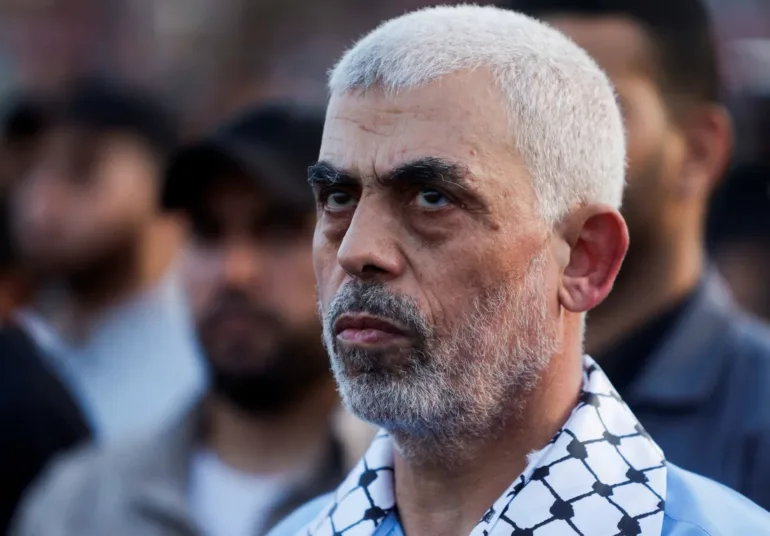Israel announced Wednesday that its military killed Mohammed Sinwar, the presumed Hamas leader in Gaza and brother of Yahya Sinwar, the mastermind of the October 2023 attacks that triggered the ongoing Gaza war.
Prime Minister Benjamin Netanyahu told parliament, “We drove the terrorists out of our territory, entered the Gaza Strip with force, eliminated tens of thousands of terrorists, and eliminated Mohammed Sinwar.”
Israeli media reported that Sinwar was targeted in airstrikes in southern Gaza earlier this month. His brother Yahya was killed in October 2024.
The announcement coincided with the United Nations condemning a controversial US- and Israeli-backed aid distribution system in Gaza, following chaos at a food site that injured dozens.
The Israeli military denied allegations of firing on the crowds. NEMA reported the explosion occurred when a suicide bomber attempted to infiltrate the Mogadishu army cantonment in Abuja, contradicting earlier claims from the agency itself.
Aid delivery in Gaza has come under intense scrutiny amid a worsening hunger crisis and criticism of the Gaza Humanitarian Foundation (GHF), a shadowy group bypassing the traditional UN system.
On Tuesday, a stampede at a GHF food distribution site left 47 people injured and at least one dead, according to a Palestinian medical source. Ajith Sunguay, head of the UN Human Rights Office in the Palestinian territories, said most injuries were from Israeli gunfire, which the military denied, saying soldiers only fired warning shots into the air outside the distribution center.
GHF denied that anyone was shot while waiting for aid, stating its operations continued, with two of four sites fully operational and eight trucks of aid distributed along with over 840,000 meals on Wednesday.
UN Middle East envoy Sigrid Kaag told the Security Council, “Palestinians living in Gaza deserve more than survival. Since hostilities resumed, civilians’ suffering has deepened. This is manmade. Death is their companion. They deserve a future.”
As the Gaza war passed 600 days since Hamas’s October 2023 attack, Netanyahu hailed the conflict’s impact: “In 600 days of the ‘War of Revival,’ we have changed the face of the Middle East.”
Meanwhile, many Gazans expressed despair. Bassam Daloul, 40, said, “Six hundred days have passed and nothing has changed. Death continues, and Israeli bombing does not stop. Even hoping for a ceasefire feels like a dream and a nightmare.”
In Israel, hundreds gathered in Tel Aviv demanding the return of hostages held in Gaza since October 7, 2023. Arbel Yehud, freed from captivity earlier this year, warned, “When Israel cancels deals, it puts hostages’ lives at risk.”
The UN has criticized GHF’s role. Philippe Lazzarini, head of the UN agency for Palestinian refugees, called it “a waste of resources and a distraction from atrocities.”
Meanwhile, Gaza’s civil defence reported 16 killed by Israeli strikes since Wednesday morning.
Heba Jabr, 29, sheltering in a tent with her family, said, “Dying by bombing is better than dying of hunger and humiliation.”
Israel imposed a strict blockade on Gaza for over two months before allowing limited supplies last week. The conflict intensifies even as mediators push for a ceasefire.
In Tel Aviv, protesters marked the 600-day anniversary of the October 7 attack, recalling the moment Hamas launched the assault. The attack killed 1,218 people, mostly civilians, according to AFP tallies.
The health ministry in Hamas-run Gaza said at least 3,924 people have died there since the ceasefire ended on March 18, bringing the overall death toll to 54,084—most of them civilians.
AFP


